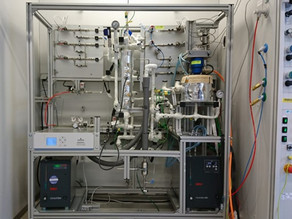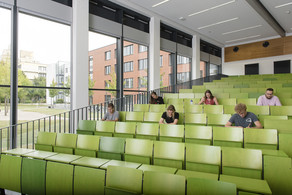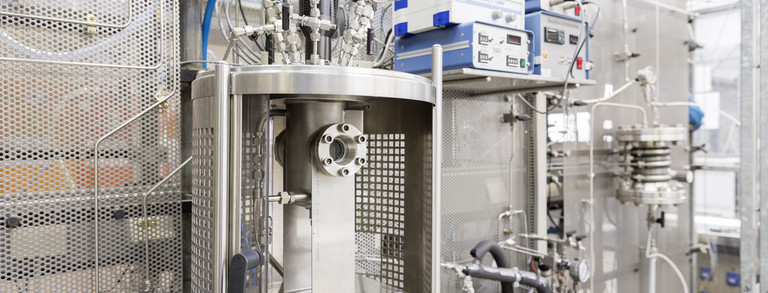Research at the REC Chair
Research leitmotif
Optimal reactors for highly efficient processes
The aim of the research work of our chair "Reaction Engineering and Catalysis" is the development of energy- and raw material-efficient process engineering with a focus on the model-based design of optimal catalytic reactors.
The required massive reduction of CO2 emissions, the closing of material cycles, the currently occurring change of the raw material base from fossil raw materials to renewable sources and furthermore the realization of a dynamic process operation due to the fluctuating availability of renewable energies are acute challenges of our time. With our research on highly efficient, but at the same time robust and flexible reactors and processes, we contribute to the solution of these questions.
To this end, we are taking a comprehensive look at innovative process, reactor and catalyst concepts, taking into account and evaluating various process intensification measures. An interdisciplinary, method- and model-based approach is necessary.
This is supported by targeted key experiments for phenomenological elucidation, data acquisition and model validation. For this purpose, dedicated laboratory reactors are used to realize ideal (gradient-free) reaction conditions as well as larger experimental facilities on the meter scale to investigate the interplay of reaction and transport processes in technical reactors. High-resolution online and offline analytics are available for the measurements.
By using powerful simulation tools (including high performance scientific computing) on the different scales and at different times in the design process, process, reactor and catalyst development are linked. Thus, it is possible to identify tailored solutions using rigorous model-based optimization calculations. For optimization, the choice of an adequate model depth, which should show an optimal compromise between level of detail and numerical manageability, is a crucial factor. However, such models are often not available, which is why the development of such models that are adequate with respect to their application in optimization is another integral part of our research.
Research Approach
- Method-based - and thus generalizable - approach
- Integrated design and optimization of catalyst, reactor and process
- Use of innovative simulation tools on different scales and at different times in the design process
- Linking of modeling and simulation with targeted key experiments for phenomenological elucidation, data acquisition and model validation
Research areas
Model-based design of optimal reactors:
Model-based determination of optimal reaction control and its best possible technical implementation in innovative reactor concepts.
Reaction kinetics: experiments, network analysis and modeling:
Identification of reaction network, reaction kinetic model and its parameters based on experimental investigations in dedicated laboratory plants.
Cellular structures as tailored catalyst supports:
In-depth understanding of local transport processes and, based on this, design and fabrication of innovative catalyst supports using additive manufacturing.



